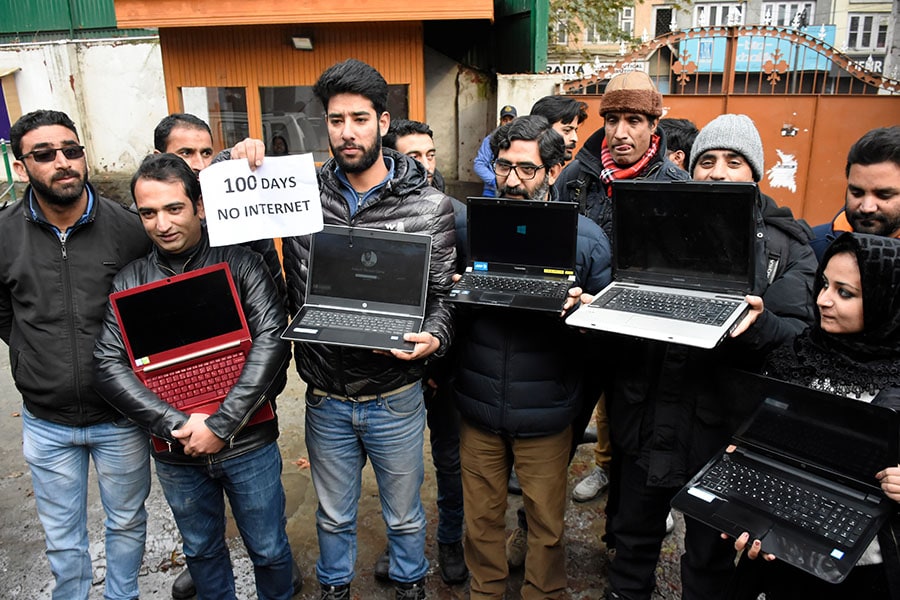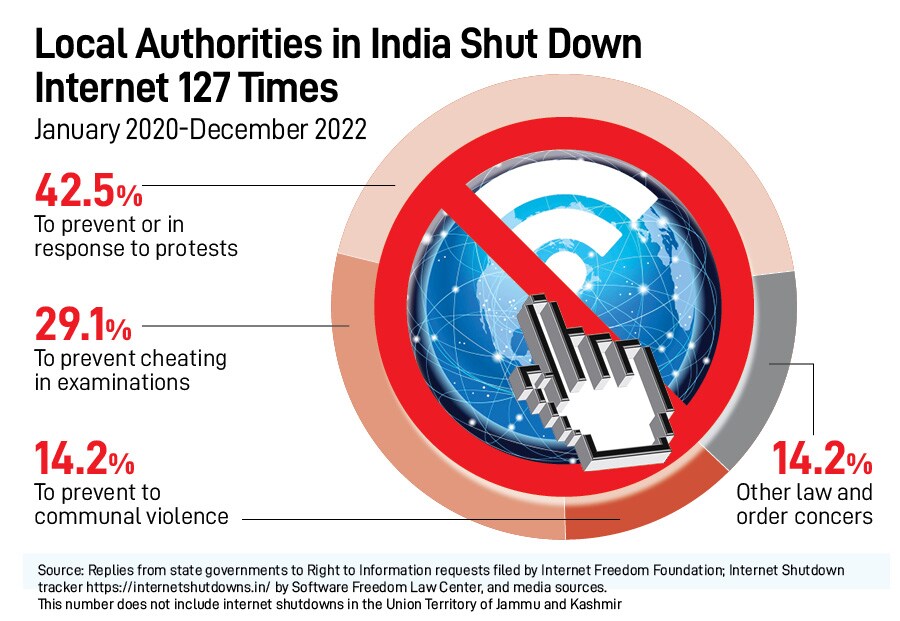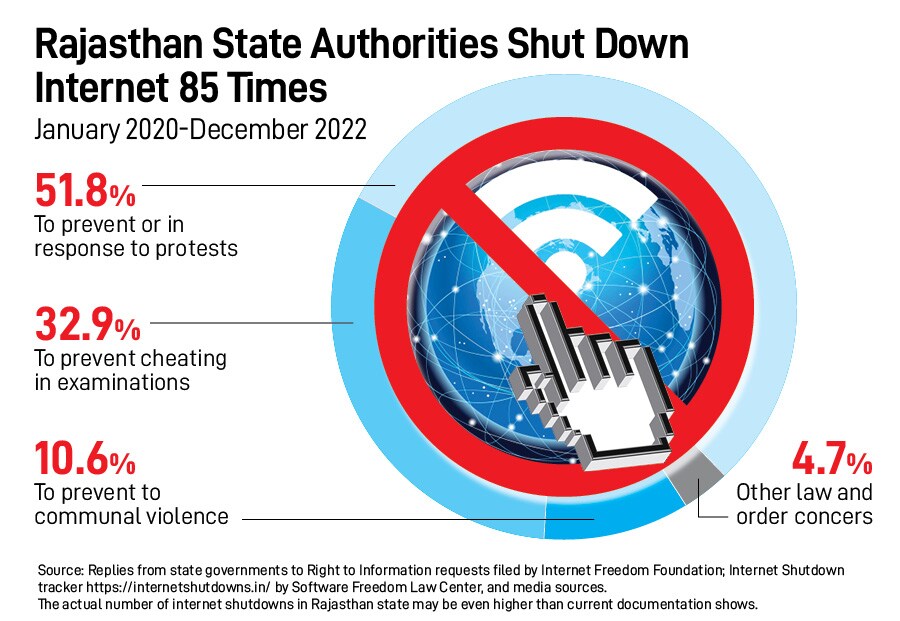
India's frequent internet shutdowns threaten its ambitious Digital India mission; poor and marginalised worst-affected
The government's move to digitise some of its flagship welfare programmes—including NREGA and linking ration to Aadhar—is at odds with the recurring, often long-lasting, communication blockades in many parts of the country. For five years in a row, India has been the internet shutdown capital of the world
 In August 2019, the Indian government blocked all communications in Jammu and Kashmir to prevent protests over the abrogation of Article 370 cutting off access to 4G internet for 500 days. Image: Muzamil Mattoo/NurPhoto via Getty Images
In August 2019, the Indian government blocked all communications in Jammu and Kashmir to prevent protests over the abrogation of Article 370 cutting off access to 4G internet for 500 days. Image: Muzamil Mattoo/NurPhoto via Getty Images
You’ve likely faced ‘downtime’ for a few frustrating minutes, even hours. In August 2019, the Indian government blocked all communications in Jammu and Kashmir to prevent protests over the abrogation of Article 370—which eventually meant that access to 4G mobile internet was cut off for 500 days.
A new report opens with the example of a Dalit woman with five children in Rajasthan, who says, “When the internet is shut down, I have no work, I do not get paid, cannot withdraw money from my account, and cannot even get food rations.”
By some estimates, India was responsible for 84 of a global 187 Internet shutdowns in 2022 alone. In 2023, we have already seen a communication blackout in Manipur in May, following ethnic clashes that lasted weeks; in March, the entire state of Punjab faced a three-day blackout to track down separatist leader Amritpal Singh.
The 82-page report by Human Rights Watch (HRW) and the Internet Freedom Foundation, released on Wednesday morning, is titled ‘No Internet Means No Work, No Pay, No Food’. It details how the shutdowns—mostly for political reasons—disproportionately impact the poor and marginalised, and affect social welfare as well as economic activities.
“We started out our research with a blank slate, and no real hypothesis. What surprised us most was how extensive the problem is, especially because Aadhar authentication just cannot happen without the internet,” says Krishnesh Bapat, a lawyer who contributed to the report. “In the event of a shutdown, it’s impossible to get basic ration because the shopkeeper cannot authenticate your Aadhar. Some people told us they could avail of the ration only on certain days of the month—so if the internet was shut down that day, they had to wait a whole month before they could get it.”










